Oct
19
2009
More Thoughts on Prophetic Cauldrons
“Out of the frying pan into the fire.”
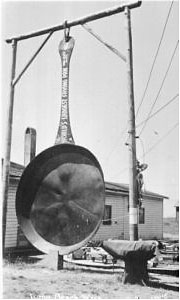 The structure of Ezekiel follows the “soundwaves” pattern found in a great deal of the Bible, particularly the prophets. The Lord speaks His word as liturgy from the Most Holy Place, it is pre-enacted by the prophet in a new “Holy Place” (from outside the city – see Rags to Robes) in some terrifying judgments as object lessons (see Liturgy as Prophecy), and then the same judgments are played out in greater detail in the “Outer Court.” All three sections are heptamerous, and in these three areas we have Word, Sacrament (the prophet as a kind of new “acting” High Priestly mediator – see How to Read the Prophets), and Government.
The structure of Ezekiel follows the “soundwaves” pattern found in a great deal of the Bible, particularly the prophets. The Lord speaks His word as liturgy from the Most Holy Place, it is pre-enacted by the prophet in a new “Holy Place” (from outside the city – see Rags to Robes) in some terrifying judgments as object lessons (see Liturgy as Prophecy), and then the same judgments are played out in greater detail in the “Outer Court.” All three sections are heptamerous, and in these three areas we have Word, Sacrament (the prophet as a kind of new “acting” High Priestly mediator – see How to Read the Prophets), and Government.
The book of Ezekiel begins with this pattern, so we have the prophetic cauldron turn up three times. Each cycle takes us through the Tabernacle speeches (Exodus 25-31) which follow the Creation Week, so this is a process of new Creation for the anointing of Ezekiel and of de-Creation for the old Tabernacle of Solomon’s Temple. It was decayed and ready to vanish away.
Continue reading
Comments Off | tags: Babylon, Daniel, Ezekiel, Luke, Nebuchadnezzar | posted in Biblical Theology, The Last Days, The Restoration Era
Oct
1
2009
More Thoughts on Prophetic Cauldrons
“Double, double toil and trouble
Fire burn, and cauldron bubble.”
Macbeth, Act 4, Scene 1
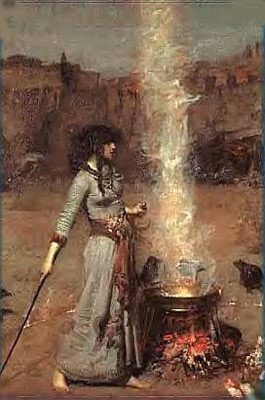
.
Two days ago, we saw the Lord take Jeremiah through the Creation/Tabernacle pattern as He anointed him. Here’s some more thoughts on the Babylonian “seething pot” using the Tabernacle pattern as a guide.
Usually, the Lampstand is at the centre of the passage (Pentecost). But the almond tree/Lampstand here is at Firstfruits. The Land of Day 3 is the Bronze Altar, but the grain and fruit (the Table) is replaced here by the almond).
Jeremiah, as a sign to Israel, is made the incarnation of Yahweh. The seven-eyed “watching tree” is actually Jeremiah, and the Lord continually asks him to “see.” As the prophetic Lampstand watched over Israel (the Table), so Jeremiah would watch over her destruction.[1] The Table seems to be covered by Nebuchadnezzar!
Continue reading
Comments Off | tags: Altar, Feasts, Jeremiah, Lampstand, Revelation, Tabernacle | posted in Biblical Theology, The Restoration Era
Sep
29
2009
or Jeremiah’s Seven Thunders
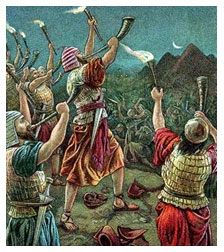 This feasts pattern covers Jeremiah 1:4 – 2:1 so the chapter division is a bit off. After the introduction (vv. 1-3), the Lord speaks. Jeremiah then speaks as Yahweh’s representative from 2:2. He is a Trumpets warning before Nebuchadnezzar’s “Day of Atonement” and the enforced sabbath of the Land.
This feasts pattern covers Jeremiah 1:4 – 2:1 so the chapter division is a bit off. After the introduction (vv. 1-3), the Lord speaks. Jeremiah then speaks as Yahweh’s representative from 2:2. He is a Trumpets warning before Nebuchadnezzar’s “Day of Atonement” and the enforced sabbath of the Land.
You must be logged in to see the rest of this post.
Join now for a year for $15!
Sabbath (Genesis – Creation)
[Word from the Ark]
Then the word of the LORD came to me, saying: ”Before I formed you in the womb I knew you; Before you were born I sanctified you; I ordained you a prophet to the nations.”
Continue reading
Comments Off | tags: Feasts, Jeremiah, Revelation | posted in Biblical Theology, The Restoration Era
Sep
28
2009
or There Is No Conscription In Christianity, So Stop Picturing It.

I’m not opposed to apparently weird and wonderful ideas from the Bible (anyone who visits this blog knows that), as long as they can be backed up repeatedly from Scripture. This is inevitably typological, and this is why I take issue with infant baptism. As I have written elsewhere here, the entire Old Testament typological freight train is against it, but I just want to hammer one point here, and I have a silver hammer.
Continue reading
11 comments | tags: Baptism, Bible Matrix, Daniel, Esther, Federal Vision, Totus Christus, Typology | posted in Biblical Theology, Christian Life, The Last Days, The Restoration Era
Sep
26
2009
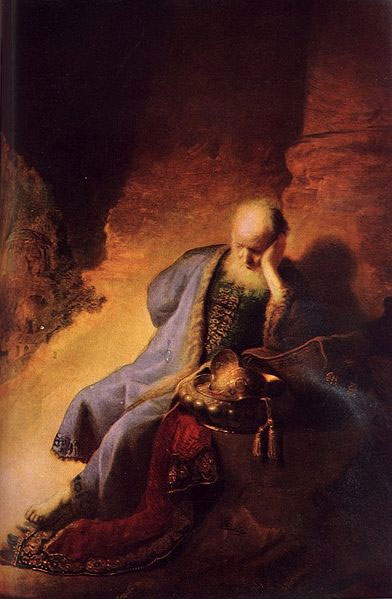
Sabbath (creation – Genesis 1:1′s “in the beginning” is literally “at the head”)
Oh that my head were waters,
and my eyes a fountain of tears,
Continue reading
Comments Off | tags: Bible Matrix, Compromise, Feasts, Jeremiah, Literary Structure | posted in Biblical Theology, The Restoration Era
Sep
24
2009
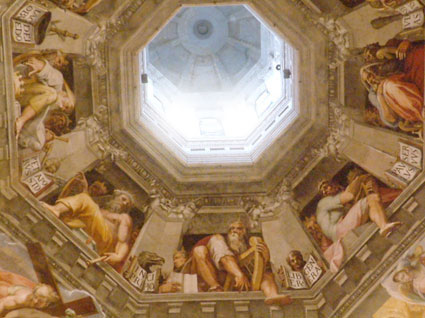
“According to I Chronicles chapter 15, 16:4-6, 37-43, David rearranged the Levitical priesthood into 24 courses (orders); he assigned 16 courses to Eleazer, and 8 courses to Ithamar. This rearrangement was chartered because of a population explosion in David’s reign.” [1]
More evidence for a human government installed in heaven in AD70 (the firstfruits church). If the rebuilt Tabernacle (the Tabernacle of David [2]) prefigured both the restoration of the Jews after the captivity (which is what Amos is actually referring to) and the Jew-Gentile church, what could David’s rearranged priesthood mean typologically?
Continue reading
Comments Off | tags: AD70, Against Hyperpreterism, Amos, Baptism, Bible Matrix, Feasts, Firstfruits, Jericho, New Jerusalem, Revelation, Tabernacle, Tabernacles | posted in Against Hyperpreterism, Biblical Theology, The Last Days, The Restoration Era, Totus Christus
Sep
16
2009

or Why Four Horsemen but Seven Seals?
“…the Egyptians are men, and not God; And their horses are flesh, and not spirit.” Isaiah 31:3
One of the three laws for Israelite kings was a command against multiplying horses and chariots—especially Egyptian ones. Solomon’s horse trading was, for a nation with a miraculous escape ON FOOT, in the eyes of the Lord, just like the faithless behaviour of the Hebrews in the wilderness. It’s always better to dwell in a tent with God than in a palace with the devil. Solomon’s kingdom of chariots and oppression became a new Egypt. By the end of the era, the pigs ruled the farm.
Continue reading
Comments Off | tags: Chariots, David, Egypt, Four Horsemen, Isaiah, Lampstand, Psalms, Solomon, Zechariah | posted in Biblical Theology, The Last Days, The Restoration Era
Sep
10
2009
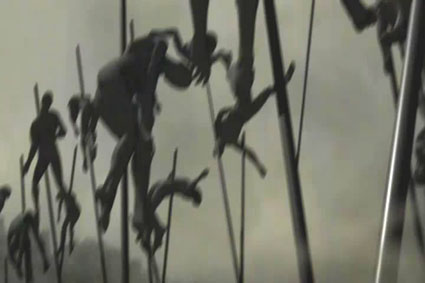
But the LORD said to Joshua, “Do not be afraid because of them, for tomorrow about this time I will deliver all of them slain before Israel. You shall hamstring their horses and burn their chariots with fire.” Joshua 11:6
‘Thus says the Lord GOD: “Are [you] he of whom I have spoken in former days by My servants the prophets of Israel, who prophesied for years in those days that I would bring you against them? Ezekiel 38:17
James Jordan’s correlation of Ezekiel 38-39 with the book of Esther makes a great deal of sense.[1] I have found it plays out in many ways, including the structure of the book of Ezekiel. None of the books of the Bible are thrown together haphazardly. They all follow strict literary conventions. The validity of this Esther interpretation is supported by the structure of the book of Ezekiel.
Continue reading
Comments Off | tags: Esther, Ezekiel, Feasts, Haman, Joshua, Translation | posted in Biblical Theology, Quotes, The Restoration Era
Jul
21
2009
or Cutting Off the Generations of the Wicked
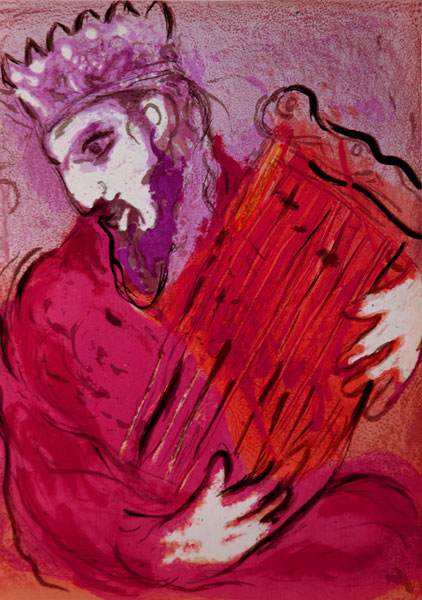
O daughter of Babylon, who are to be destroyed, Happy the one who repays you as you have served us! Happy the one who takes and dashes your little ones against the rock!
(Psalm 137:8-9)
A further comment on Psalm 137 (following Church and State and Liturgy as Prophecy):
The church has the power to excommunicate, but the state alone has the power to execute. In Joshua’s and David’s time, church and state were one, thus Israel’s army slaughtered God’s enemies judicially. In Mordecai’s time, the slaughter of Haman’s followers by the Jews occurred only after church and state became one under Mordecai’s new executive power.
You must be logged in to see the rest of this post.
Join now for a year for $15!
As an advisor to the state, the church gives the word, and offers the sacraments, but it is always the state that carries out the judgment — government. The state is the “outer court” into which the living sword-water flows. Some taste life and others taste death. [1]
Continue reading
Comments Off | tags: AD70, Babylon, Joshua, Mordecai, Nebuchadnezzar, Psalms, Zedekiah | posted in Biblical Theology, The Last Days, The Restoration Era, Totus Christus
Jul
14
2009
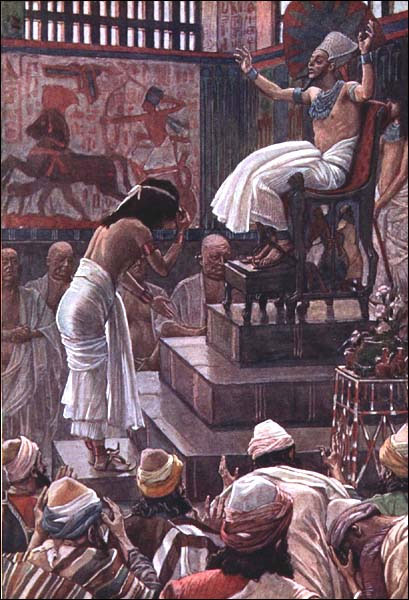
or Theonomy in the Bible
“…instead of Moses and Aaron challenging the powers that be, we have Herodian preachers crying “Peace, peace” when there is no peace. Nathan is not qualified to confront David because Nathan himself has been sleeping around.”
In his post Christianity as Comprehensive Cultural Tribunal?, timsmartt questions the validity of philosophy’s self-appointed role as an unbiased cultural referee and wonders whether Christianity should take that role:
Continue reading
Comments Off | tags: Aaron, Abraham, Against Hyperpreterism, antichrist, Daniel, Esther, Herod, Jethro, John the Baptist, Korah, Melchizedek, Mordecai, Moses, Nathan, Philosophy, Postmillennialism, Solomon | posted in Biblical Theology, The Last Days, The Restoration Era
 The structure of Ezekiel follows the “soundwaves” pattern found in a great deal of the Bible, particularly the prophets. The Lord speaks His word as liturgy from the Most Holy Place, it is pre-enacted by the prophet in a new “Holy Place” (from outside the city – see Rags to Robes) in some terrifying judgments as object lessons (see Liturgy as Prophecy), and then the same judgments are played out in greater detail in the “Outer Court.” All three sections are heptamerous, and in these three areas we have Word, Sacrament (the prophet as a kind of new “acting” High Priestly mediator – see How to Read the Prophets), and Government.
The structure of Ezekiel follows the “soundwaves” pattern found in a great deal of the Bible, particularly the prophets. The Lord speaks His word as liturgy from the Most Holy Place, it is pre-enacted by the prophet in a new “Holy Place” (from outside the city – see Rags to Robes) in some terrifying judgments as object lessons (see Liturgy as Prophecy), and then the same judgments are played out in greater detail in the “Outer Court.” All three sections are heptamerous, and in these three areas we have Word, Sacrament (the prophet as a kind of new “acting” High Priestly mediator – see How to Read the Prophets), and Government.

































